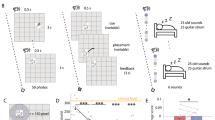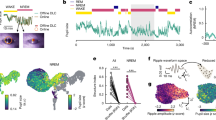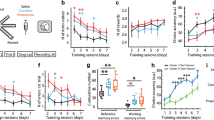Abstract
REM sleep enhances hippocampus-dependent associative memory but has little impact on striatal-dependent procedural learning. Antidepressant medications like desipramine (DMI) inhibit rapid-eye-movement (REM) sleep but it is little understood how antidepressant treatments affect learning. We found that DMI strongly suppressed REM sleep in rats for several hours and impaired reconsolidation of a familiar maze and consolidation of moved baited positions (reversal learning) in a sleep-dependent fashion. Unexpectedly, DMI also reduced the spindle-rich transition-to-REM sleep state (TR) and spatial memory changes were more related to TR than to REM sleep. Working memory was unaffected, but overnight reference memory was significantly impaired and subjects increased reliance on non-hippocampal strategies. Procedural memory performance was positively correlated with increases in non-REM sleep after DMI serving to offset memory declines, partially preserving performance. Our results suggest that familiar memories are re-consolidated during REM sleep, reversal memories consolidated during TR, and procedural memories consolidated during non-REM sleep.
Similar content being viewed by others
Article PDF
Author information
Authors and Affiliations
Corresponding author
Rights and permissions
About this article
Cite this article
Watts, A., Gritton, H., Sweigart, J. et al. Antidepressant suppression of REM and spindle sleep impairs hippocampus-dependent learning and memory but fosters striatal-dependent strategies. Nat Prec (2011). https://doi.org/10.1038/npre.2011.6524.1
Received:
Accepted:
Published:
DOI: https://doi.org/10.1038/npre.2011.6524.1



